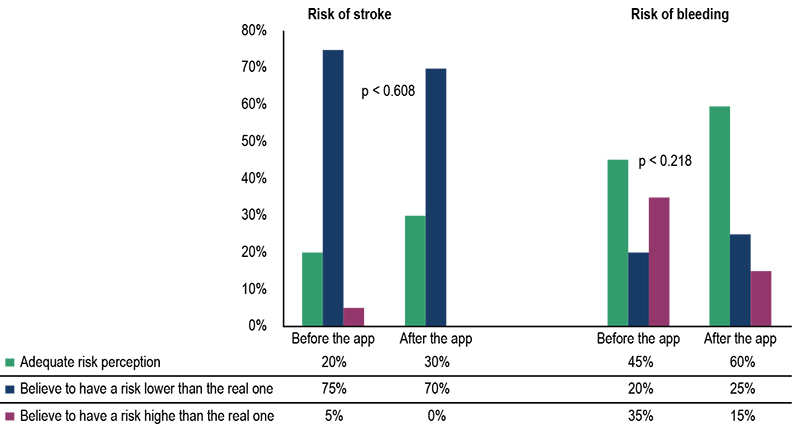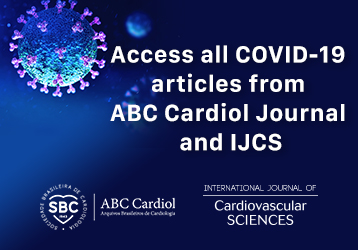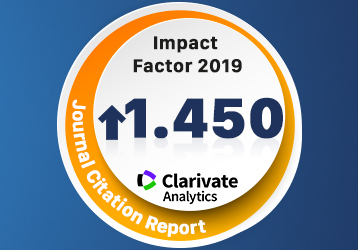Volume 110, Nº 1, January 2018
DOI: http://www.dx.doi.org/10.5935/abc.20170181
ORIGINAL ARTICLE
Oral Anticoagulation in Atrial Fibrillation: Development and Evaluation of a Mobile Health Application to Support Shared Decision-Making
Laura Siga Stephan
Eduardo Dytz Almeida
Raphael Boesche Guimarães
Antonio Gaudie Ley
Rodrigo Gonçalves Mathias
Maria Valéria Assis
Tiago Luiz Luz Leiria
Dr. Laura Siga Stephan
![]() Click here to download the Afib application
Click here to download the Afib application

Figure 3 – Risk perception of stroke and bleeding by the patients before and after interacting with the application compared with the real risk, calculated by the CHA2DS2-VASc and HAS-BLED scores, showing a non-significant increase in the adequate perception of the risk. Comparisons were performed by the Wilcoxon test.
Abstract
Background: Atrial fibrillation is responsible for one in four strokes, which may be prevented by oral anticoagulation, an underused therapy around the world. Considering the challenges imposed by this sort of treatment, mobile health support for shared decision-making may improve patients’ knowledge and optimize the decisional process.
Objective: To develop and evaluate a mobile application to support shared decision about thromboembolic prophylaxis in atrial fibrillation.
Methods: We developed an application to be used during the clinical visit, including a video about atrial fibrillation, risk calculators, explanatory graphics and information on the drugs available for treatment. In the pilot phase, 30 patients interacted with the application, which was evaluated qualitatively and by a disease knowledge questionnaire and a decisional conflict scale.
Results: The number of correct answers in the questionnaire about the disease was significantly higher after the interaction with the application (from 4.7 ± 1.8 to 7.2 ± 1.0, p < 0.001). The decisional conflict scale, administered after selecting the therapy with the app support, resulted in an average of 11 ± 16/100 points, indicating a low decisional conflict.
Conclusions: The use of a mobile application during medical visits on anticoagulation in atrial fibrillation improves disease knowledge, enabling a shared decision with low decisional conflict. Further studies are needed to confirm if this finding can be translated into clinical benefit. (Arq Bras Cardiol. 2018; 110(1):7-15)
Keywords: Anticoagulants/therapeutic use; Atrial Fibrillation; Stroke; Hemorrhage; Medication Adherence; Telemedicine.















